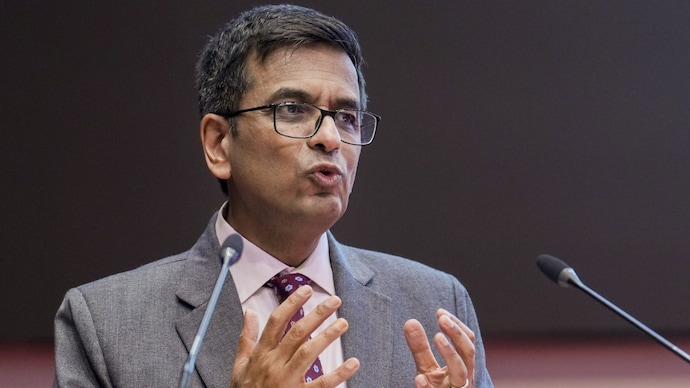The Chief Justice of India, D.Y. Chandrachud, who is set to leave office on November 10, emphasised that judicial independence does not solely mean ruling against the government. Speaking at an event in Delhi, the Chief Justice encouraged the public to trust judges to make fair and balanced decisions.
Reflecting on his recent ruling striking down the electoral bonds scheme, Justice Chandrachud noted that he was praised as “very independent” for ruling against the government.
“When you decide electoral bonds, then you are very independent, but if a verdict goes in favour of the government, then you are not independent… That is not my definition of independence,” he explained.
The electoral bonds scheme, deemed unconstitutional by a unanimous decision of a five-judge Constitution Bench led by Justice Chandrachud, was struck down on February 15. The ruling brought an end to a controversial political funding method that had been under scrutiny since its introduction in 2018.
Justice Chandrachud further elaborated on traditional notions of judicial independence, noting that it has historically been viewed as a separation from the executive.
“Independence of the judiciary even now means independence from the government. But that is not the only aspect of judicial independence. Our society has changed. Particularly with the advent of social media… Interest groups, pressure groups and groups that use electronic media to sway the courts towards favourable decisions,” he remarked.
The Chief Justice expressed concern over the influence of external pressure on the judiciary, stating that many of these interest groups label judges as independent only when decisions align with their perspectives.
“’If you do not decide in my favour, you are not independent’ — that is what I object to. To be independent, a judge must have the freedom to decide in accordance with their conscience, of course guided by law and the Constitution.”
Justice Chandrachud emphasised the importance of allowing judges the freedom to make impartial decisions, asserting that “the balance of justice” must be upheld, regardless of whom a verdict may favour. “The cases which have to go against the government, we decide against the government. But if the law requires a case to be decided in favour of the government, it must be done so in accordance with the law. This message is crucial to sustaining a stable and vibrant judiciary,” he concluded.
Also Read: Canadian Hindus Protest in Brampton After Temple Attack By Pro-Khalistanis













